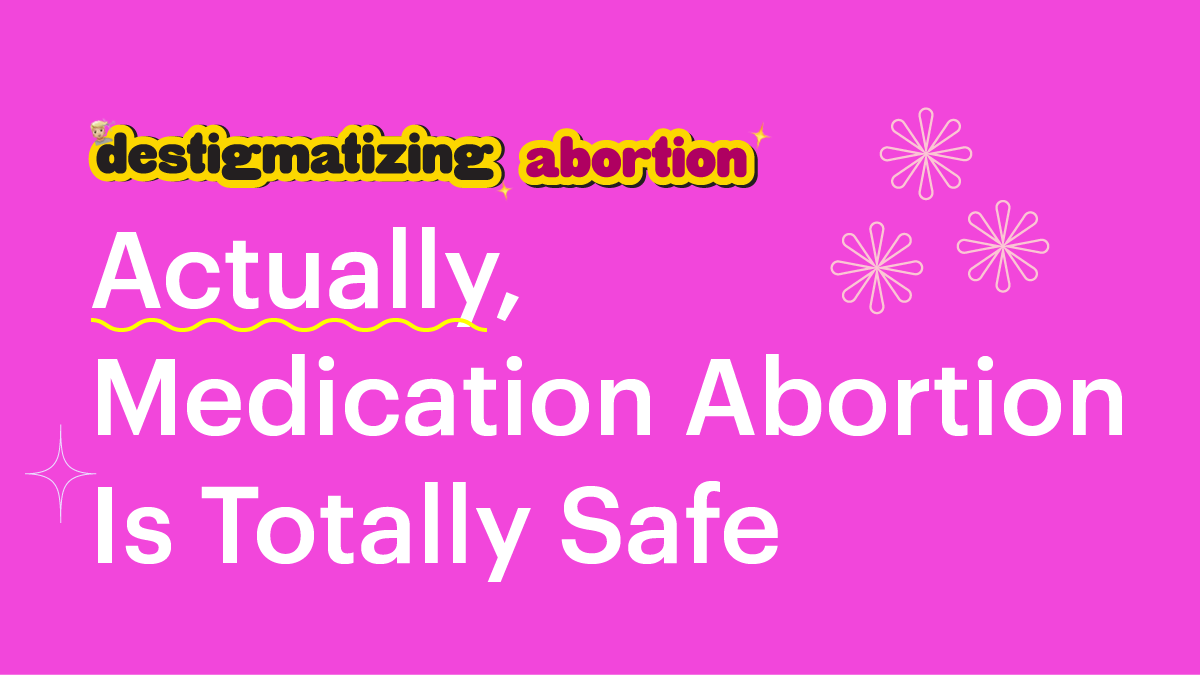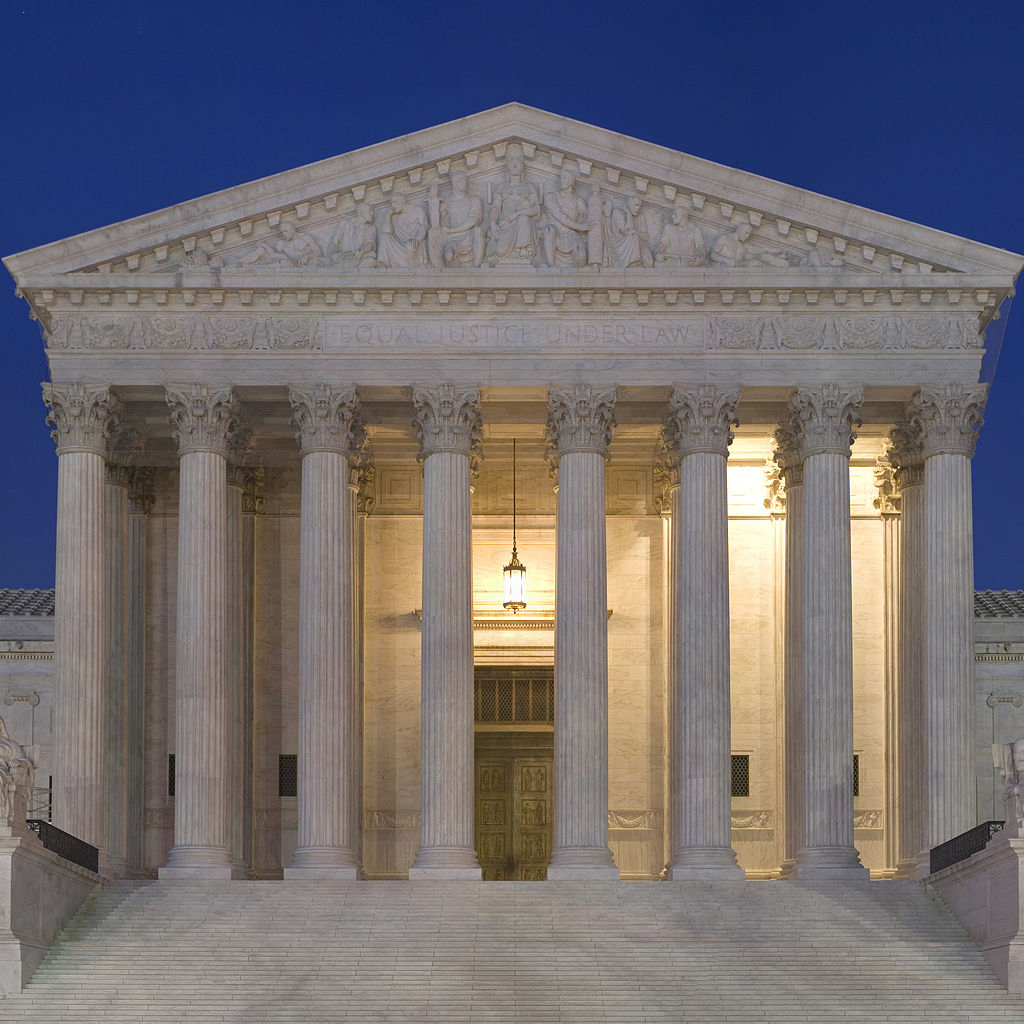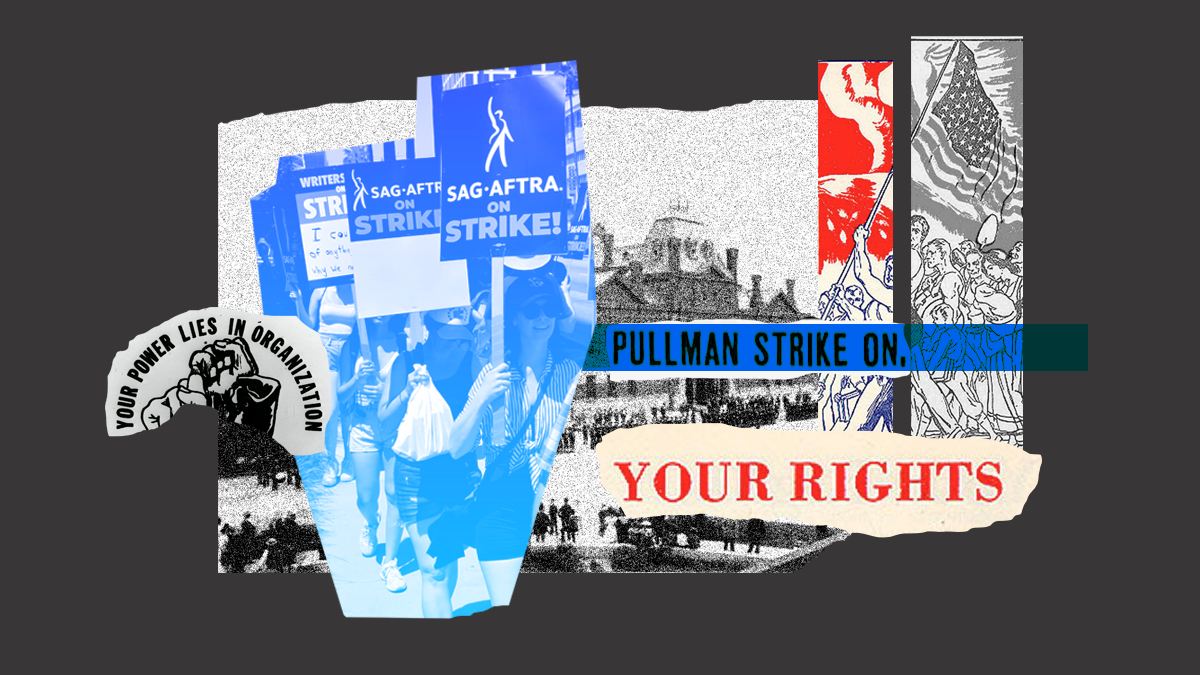Abortion rights, women of color, and LGBTQIA+ people are under attack. Pledge to join us in fighting for gender justice.
Destigmatizing Abortion: Actually, Medication Abortion Is Totally Safe

Hey there! If you care about abortion access—and we hope you do—you probably don’t want to draw on historically inaccurate and sometimes racist tropes in your advocacy. Our “Destigmatizing Abortion” series breaks down some of the mistakes a lot of us can make in our advocacy journey.
Today, let’s talk about medication abortion.
With so much misinformation out there, we need to regroup a bit:
- The FDA-approved medication abortion process consists of two different pills: mifepristone and misoprostol.
- Mifepristone has been approved by the FDA for more than two decades and has been used by over 5 million people since its approval.
- Countless data and research studies have proven that mifepristone is extremely effective and has a better safety record than Tylenol and Viagra.
- Abortion pills are critical to patients who need abortion care as well as miscarriage management care.
So why is access to medication abortion under attack? And why are anti-abortion extremists spreading stigmatizing lies about medication abortion pills and calling their well-documented safety into question?
The short answer: because they know that, despite their state bans, people can still get abortions by using medication at home. And that absolutely enrages them. They know that medication abortion is critical to filling the gaps in access to care, particularly in the aftermath of the Dobbs decision.
Many patients rely on medication abortion because it is easier to access (both before and after the fall of Roe), especially for communities facing the most obstacles to care, such as Black, Indigenous, and other people of color, those with low incomes, LGBTQ+ people, young people, immigrants, people with disabilities, and those living at the intersection of those identities. The abortion patient is far from a monolith, and people of all walks of life will need this health care to be available to them in every method possible.
These extremists also want to spread fear among patients.
Even if their attempts to block access are unsuccessful—and thankfully, mifepristone is still available—these attacks have a second, insidious impact: to make people doubt the safety of medication abortion. These extremists want you to think of abortion pills as “dangerous” because it helps further stigmatize abortion—when really abortion is safe health care whether undertaken through pills or through a procedure in a clinic.
With so many abortion clinics being forced to shut down due to bans and restrictions, medication abortion is the most access-friendly option for many people.
People who want to end their pregnancies may not be able to travel to access abortion because of their job, responsibilities, child care, costs, etc. In these cases, medication abortion is often the cheapest and most accessible option–and it’s perfectly safe. And for some, medication abortion is their only option for abortion care. (Right now, for roughly 2.4 million women of reproductive age who live in counties with abortion providers, medication abortion is their only option for abortion care.)
There’s a lot of misinformation, junk science, and shaming out there, but here’s the bottom line: medication abortion is safe and effective, and needs to be normalized. Medication abortion, like all abortions, is an act of self-love, self-care, and community care. It allows people to self-manage their abortions from the comfort of their own homes, with dignity, care, and the support of their loved ones—something everyone should have the ability to do.





